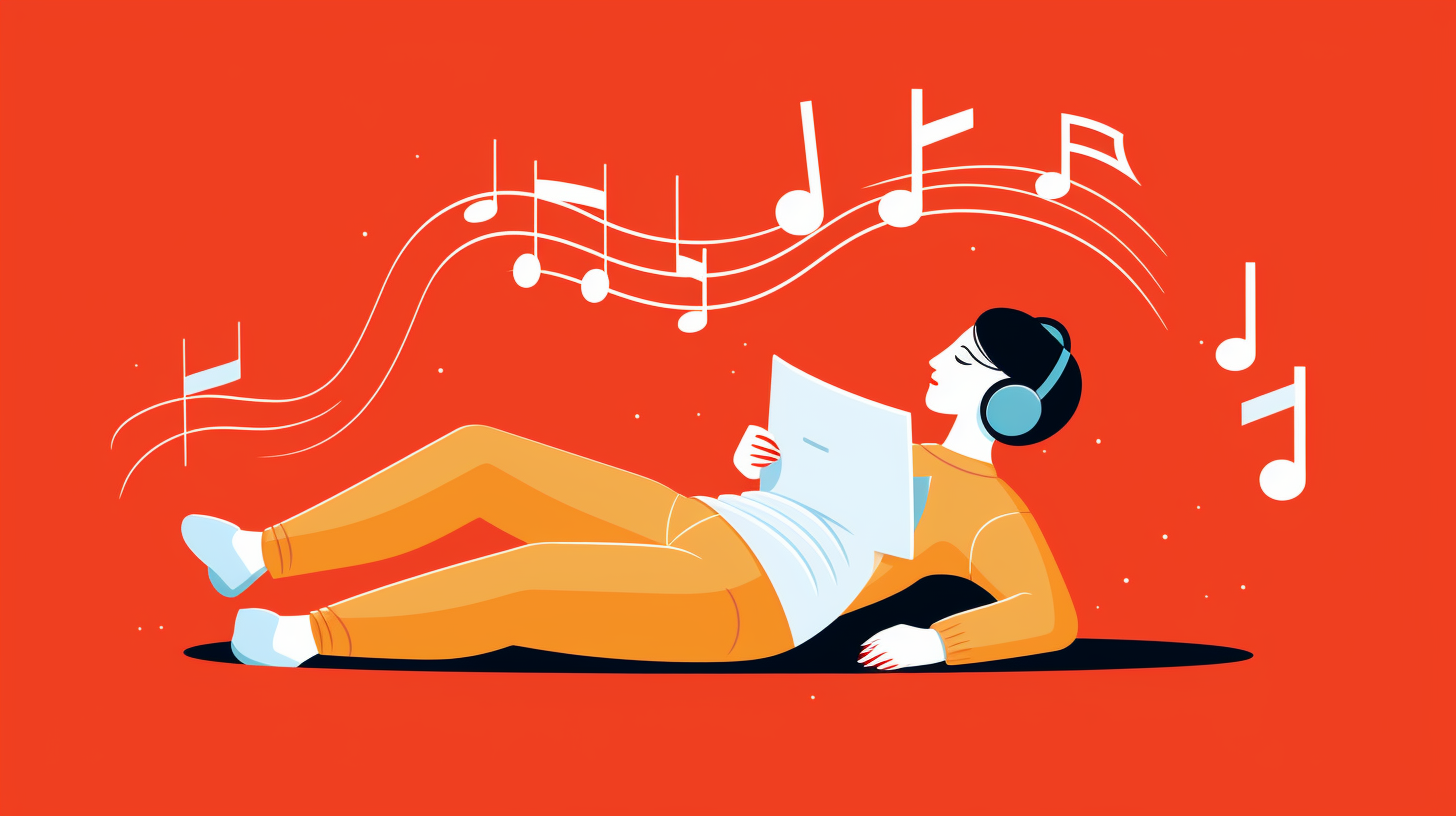You might think of reading as a healthy habit, but can it tip into a reading addiction? It’s a question that’s not often asked, yet the impact of this compulsive behavior can be profound. In the pages ahead, we’ll explore what happens when the love of books overshadows everything else.
We’ll investigate understanding reading addiction, the science that explains why some can’t put a book down, and the psychological effects it may have. Plus, you’ll get insights into coping with reading addiction, ensuring your passion for reading remains a pleasure, not a problem.
The Impact of Reading Addiction
When you’re addicted to reading, it may seem like a harmless habit. However, addiction to books can have significant consequences. On the surface, being addicted to reading books might appear to be a positive trait, but when this interest escalates into a compulsion, it’s essential to recognize the potential risks.
If the idea of “can reading be an addiction” seems far-fetched, consider the hallmarks of addictive behavior: the inability to stop, a neglect of everyday responsibilities, and a continual craving for the next ‘fix.’ For someone with a reading addiction, completing a book can spur a sense of loss, prompting the immediate need to start another. This cycle can lead to a constant chase for the next literary thrill.
Individuals often wonder, “Can you be addicted to reading?” The answer is yes. Like any addiction, a book addiction can disrupt sleep patterns and lead to insomnia. There’s a table below showing the link between sleep deprivation and its effects on health:
| Hours of Lost Sleep | Health Impacts |
| — | — |
| 1-2 hours nightly | Reduced cognitive function and mood disturbances |
| 3+ hours nightly | Increased risk of chronic health conditions |
Also, your social connections and professional life may suffer if you’re continually nose-deep in a novel. Finding a balance and ensuring that your passion for literature does not overshadow necessary aspects of daily life is essential.
Addiction to books can be a slippery slope. Over time, excessive reading can start to fill a void, leading to neglect of healthy relationships and physical activity. While engulfed in the pages of a captivating story, you might even ignore signs of mental fatigue and the need for rest. Monitoring and keeping your reading habits in check is crucial to maintain overall well-being.
Addressing a book addiction doesn’t mean you have to give up reading. Instead, it’s about creating harmony between the books you love and the other valuable elements of your life. Set limits on your reading time and make space for active engagement with the world around you. Remember, literature is one of many joys in life, and it’s most rewarding when it doesn’t come at the cost of your health or personal relationships.
Understanding Reading Addiction
What Is Reading Addiction?
Reading addiction, or being addicted to reading, is a behavioral compulsion where you find yourself perpetually drawn to books and literature to the detriment of other life aspects. Unlike more typical addictions, an addiction to reading isn’t widely acknowledged because reading is often seen as a beneficial activity. But, much like any compulsion, can reading be an addiction? Yes, it can if it interferes with your daily living, social interactions, and responsibilities.
Signs and Symptoms of Reading Addiction
Recognizing reading addiction begins with identifying the tell-tale signs that your love for books may be tipping into the territory of addiction to books. You might be addicted to reading if you observe the following symptoms:
- Choosing Books Over Sleep: If you frequently sacrifice sleep to read, you may show signs of addiction to reading books.
- Neglecting Responsibilities: Consistently putting off obligations to spend time with a book is a hallmark of book addiction.
- Compulsion to Read Constantly: Feeling an overwhelming urge to read at all times indicates a compulsive behavior indicative of a reading addiction.
- Disrupted Social Life: When your social life deteriorates because you prefer reading over engaging with friends and family, it could suggest a dependency on books.
While these signs are not exhaustive, they highlight a common thread—prioritizing reading over essential life functions. Understanding these signs can be the key to managing your reading habits better. Remember, checking in with yourself about the role reading plays in your life is crucial to maintaining balance.
The Science Behind Reading Addiction
The Role of Dopamine in Reading Addiction
When you’re addicted to reading, your brain’s reward system is at play, particularly a neurotransmitter called dopamine. Dopamine is a chemical messenger associated with pleasure and motivation. As you become absorbed in a book, your brain releases dopamine, mirroring the effects of other addictive behaviors. This release reinforces the addiction to books, driving the desire to experience that high again. As you read, especially a gripping narrative, anticipation builds, and so does dopamine release, further fueling your reading addiction.
Interestingly, for those addicted to audiobooks, this effect is likely magnified. Listening can engage more of your senses and potentially create an even stronger dopamine response as you visualize the story and hear it come to life. It illustrates that when it comes to being addicted to reading books, the format–whether print or audio–can significantly impact the psychological pull.
How Reading Addiction Affects the Brain
Your daily activities influence your brain structure and function, and an addiction to reading is no exception. Neuroplasticity allows your brain to adapt based on repetitive behaviors. Frequent reading or listening to audiobooks makes the neural pathways associated with language, comprehension, and imagination more developed. For those addicted to reading, the brain areas associated with these skills may be more pronounced.
Profound engagement with books affects the brain’s circuitry. This isn’t necessarily negative – unless the behavior becomes compulsive and interferes with daily life, a sign you might be dealing with a book addiction. For audiobook listeners, this effect is particularly beneficial. Audiobooks can increase brain connectivity, providing cognitive benefits while freeing up your hands and eyes for other tasks.
The question of “Can reading be an addiction?” indeed has scientific backing. Your brain’s reward centers activate in response to reading, much like they would with other addictive behaviors. But, this addiction to reading can have both positive and negative impacts depending on how much it takes over other essential aspects of your life. Audiobooks serve as a testament to the positive side, offering a form of reading addiction that can fit seamlessly into your busy lifestyle while fostering intellectual and emotional growth.
The Psychological Effects of Reading Addiction
Escapism and Reading Addiction
Escapism can be a driving force for those addicted to reading books. For you, diving into a fictional world offers a reprieve from daily stresses and anxieties. But when escapism shifts from occasional refuge to constant need, reading addiction takes hold. You might notice your reality blurs as you prioritize the imagined lives of characters over your engagements and relationships. This behavior becomes a crutch, and addiction to reading evolves from indulgence to compulsion.
Emotional Connection and Reading Addiction
Developing an emotional connection to characters and stories isn’t uncommon. If you’re addicted to reading, you often form intense bonds with these fictional entities. This fierce engagement can lead to heightened euphoria from positive outcomes or profound sadness with negative twists. In extreme cases, when you’re addicted to books, your mood may depend heavily on narrative developments, impacting your emotional well-being far beyond the last page.
Social Isolation and Reading Addiction
Where reading addiction exists, so too might social isolation. Book addiction can lead you to decline social invitations instead of spending time with a treasured book. Although reading provides valuable alone time that aids in emotional growth, you risk severing ties with your real-world social network when taken to excess. The balance is recognizing when a healthy habit morphs into an isolation-inducing book addiction. Audiobooks, in contrast, allow for multitasking, letting you maintain your love for stories without sacrificing social connectivity.
Coping with Reading Addiction
Setting Healthy Reading Habits
To manage your reading addiction, setting healthy reading habits is essential. Firstly, analyze your reading behavior—how often and for how long do you read, and what triggers your desire to jump into books? With this self-awareness, you can set limits for yourself. For instance, designate specific times for reading each day and stick to them. This will prevent you from being addicted to reading books for extended periods. Use a timer to remind yourself to take breaks and avoid the temptation of getting lost in a book for too long.
Also, consider diversifying your reading materials. If you’re addicted to books from a particular genre or author, try exploring other genres or even different mediums like articles or blogs. This can provide a more balanced reading experience and keep your reading addiction in check. Most importantly, make it a rule to not miss meals or sleep because of reading—a typical behavior among those with book addiction.
Balancing Reading with Other Activities
Balancing your love for books with other interests is crucial. Here’s why:
- Prevents isolation: Interacting with others and participating in diverse activities helps avoid the social isolation that comes from excessive reading.
- Enhances physical health: Physical activities contribute to your overall health, which can be sidelined if you’re constantly reading.
- Stimulates other brain areas: Engaging in varied activities challenges different cognitive skills, not just those used in reading.
If you find it hard to stop reading, try setting appointments for other activities. Start small by scheduling tasks or hobbies you enjoy that can rival the pleasure you get from books. For someone addicted to reading, audiobooks represent an excellent alternative as you can listen while engaging in other activities like exercising or cooking, so you can maintain your engagement with stories without compromising your other responsibilities.
Seeking Support and Professional Help
Addiction to reading, like any other behavioral addiction, might require professional help if you find it overwhelming to address on your own. Therapists and counselors can offer strategies to control your urges and may suggest joining support groups. Also, cognitive-behavioral therapy could be beneficial in identifying thought patterns that lead to excessive reading and developing alternatives for coping.
Remember, getting assistance is a sign of strength, not weakness. If you suspect your reading habits have escalated to an addiction to books, don’t hesitate to reach out for help. In the meantime, substituting reading with audiobooks can offer a hands-free, less immersive option that allows you to manage your time better and reduce feelings of isolation by enabling you to listen in a group setting or while being active.
Conclusion: Finding a Healthy Relationship with Reading
Recognizing the signs of reading addiction and taking proactive steps to manage it can lead to a more balanced life. You’ve got the tools to create healthy reading habits and the knowledge that there’s no shame in reaching out for help when needed. Remember, it’s all about finding equilibrium—allowing yourself the joy of getting lost in a good book while ensuring you’re not losing sight of other vital aspects of life.
Embrace the variety of experiences life offers, and let reading be one of many enriching activities. Stay empowered and in control, and you’ll cultivate a love for reading and a well-rounded, fulfilling life.
Frequently Asked Questions
Does reading affect your brain?
Regular reading can improve brain power and enhance memory function by acting as a mental workout.
Does reading rewire your brain?
Reading can indeed rewire your brain, create new neural pathways, and strengthen connections in the white matter, thus boosting the efficiency of information processing.
What is a reading addiction called?
Reading addiction is commonly referred to as bibliomania, where individuals are so obsessed with books that they may go to great lengths to acquire them.
Can reading become a habit?
Reading can become a habit by setting daily achievable reading goals based on either time spent or pages read, which helps establish a regular reading routine.
Why am I suddenly obsessed with books?
Sudden obsession with books can be caused by a need for escapism, a desire to learn, or finding pleasure in connecting with stories and characters. Reading stimulates the mind and fuels the imagination.




